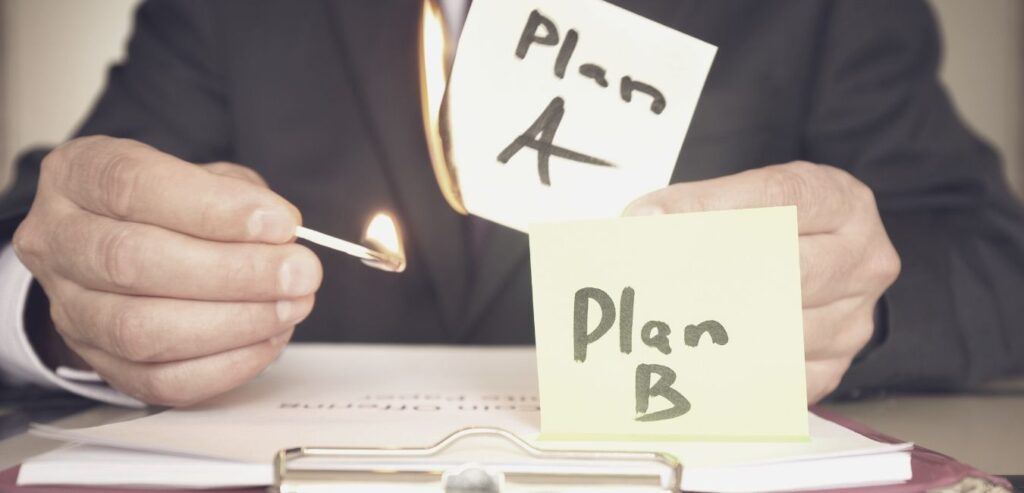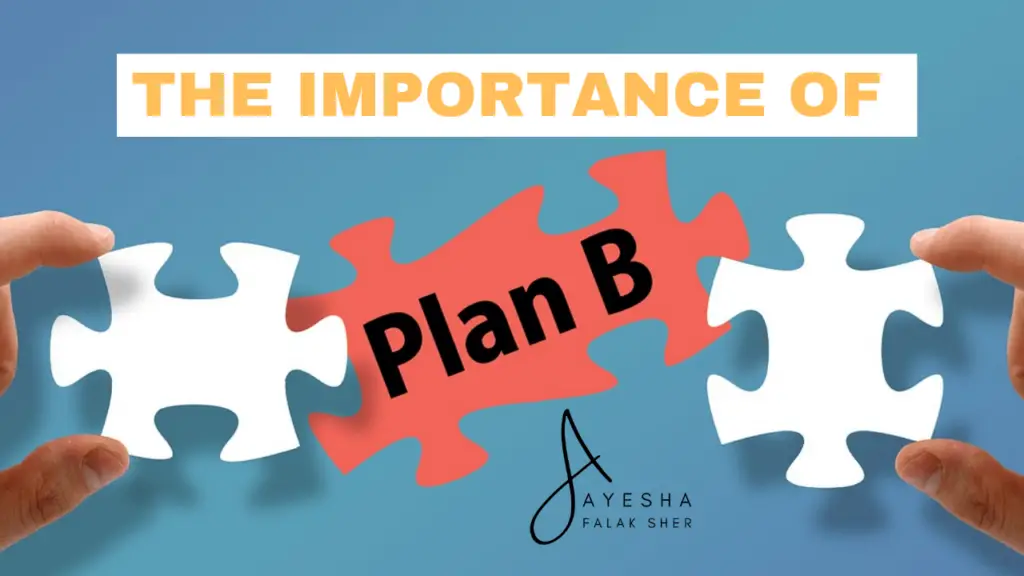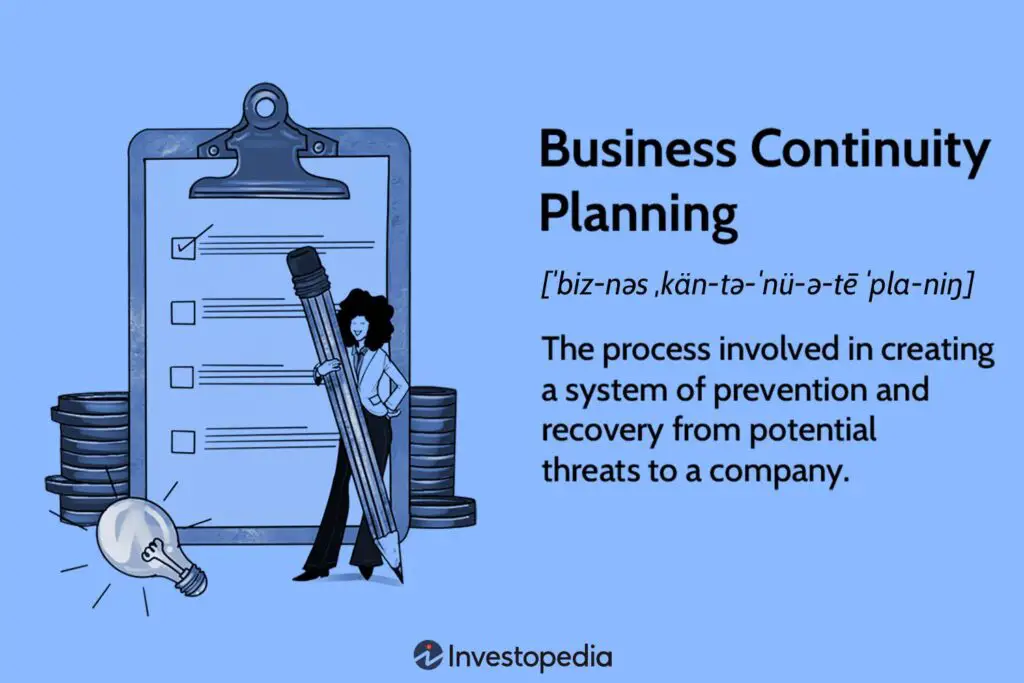In the world of prepping, having a backup plan is not just a luxury, it is an absolute necessity. Whether you are preparing for a natural disaster, economic crisis, or any other unforeseen event, having multiple contingency plans can mean the difference between thriving and merely surviving. While it may be tempting to put all your eggs in one basket, this article will explore the importance of having a Plan B, C, and D in your prepping endeavors. By being adaptable and prepared for various scenarios, you can increase your chances of successfully navigating through whatever challenges come your way.

Ensuring Security
Protection from unexpected events
Ensuring security is of utmost importance when it comes to prepping. Being prepared for unexpected events can greatly minimize the impact they have on your life. Whether it’s natural disasters, power outages, or even societal unrest, having a plan in place can protect you and your loved ones from harm. This includes having emergency kits, having a safe space within your home, and knowing how to secure your property and belongings.
Maintaining safety in emergencies
Maintaining safety during emergencies can be challenging, but with the right preparations, you can greatly reduce the risk. This includes having a designated meeting place for your family members in case you get separated, knowing the proper emergency procedures for your area, and having a reliable communication plan. It’s also crucial to have a basic understanding of first aid and CPR, as these skills can make a significant difference in emergencies.
Adapting to Changing Circumstances
Flexibility in response to new situations
Being flexible and adaptable is key to effectively navigating new situations. As circumstances can change quickly during emergencies, having the ability to think on your feet and adjust your plans accordingly is crucial. This includes having backup plans for different scenarios, such as alternative evacuation routes or alternative sources of food and water. By being mentally prepared for these situations, you can minimize stress and increase your chances of a successful outcome.
Preparing for different scenarios
Preparing for a single event or disaster may not be enough. It’s important to consider various scenarios and have plans in place for each one. This may include preparing for natural disasters like hurricanes, floods, or earthquakes, as well as man-made emergencies like power outages or civil unrest. By preparing for different scenarios, you can ensure that you have the necessary resources and plans to handle any situation that may arise.
Increasing Self-Reliance
Reducing dependence on external resources
In times of crisis, external resources may become scarce or inaccessible. By reducing your dependence on these resources, you can ensure your ability to sustain yourself and your family. This may include growing your own food, harvesting rainwater, or even generating your own electricity through renewable sources. By becoming more self-reliant, you can mitigate the impact of any disruptions and ensure your long-term sustainability.
Enhancing survival skills
Developing and enhancing survival skills is essential to increase your self-reliance. These skills can include fire-making, shelter-building, foraging, and basic medical care. By honing these skills, you can increase your ability to survive in various situations and better protect yourself and your loved ones. It’s important to continuously practice and learn new skills to stay prepared for any challenges that may come your way.
Mitigating Risk
Minimizing potential losses
One of the key aspects of prepping is minimizing potential losses. This includes taking steps to secure your home and belongings, such as installing security systems or reinforcing doors and windows. It’s also important to have adequate insurance coverage for your property and possessions. By taking these precautions, you can minimize the financial and emotional impact of any unforeseen events.
Avoiding single points of failure
Relying on a single solution or plan can be risky. It’s important to have multiple options and redundancies in place to avoid single points of failure. This may include having backup power sources, multiple methods of communication, and alternative routes of evacuation. By diversifying your plans and resources, you can increase your chances of successfully navigating through emergencies and unexpected events.
Building Resilience
Bouncing back from setbacks
Building resilience is crucial in prepping. It’s not just about surviving the immediate aftermath of a crisis, but also about being able to bounce back and recover. Resilience is the ability to adapt and thrive even in the face of adversity. By developing a resilient mindset, you can better cope with setbacks, learn from your experiences, and come out stronger on the other side.
Coping with adversity effectively
Adversity is a natural part of life, and prepping is all about being prepared to face it head-on. By developing coping mechanisms and strategies, you can effectively navigate through challenging situations. This may include practicing mindfulness and stress-reducing techniques, maintaining a positive outlook, and seeking support from your loved ones and community. By equipping yourself with effective coping skills, you can better handle the emotional and psychological toll that emergencies can have.
Enhancing Preparedness
Being ready for unforeseen circumstances
Preparedness is all about being ready for the unexpected. By having a well-thought-out plan and being proactive in your preparations, you can greatly reduce the impact of unforeseen circumstances. This includes regularly reviewing and updating your emergency kits, ensuring you have a stockpile of essential supplies, and staying informed about potential threats or changes in your environment. By staying prepared, you can minimize panic and make informed decisions during emergencies.
Reducing vulnerability
Vulnerability is often heightened during times of crisis. By identifying potential vulnerabilities in your life, you can take steps to reduce them. This may include securing your home against break-ins, having a backup source of income, or even developing a strong support network within your community. By addressing these vulnerabilities, you can enhance your overall preparedness and increase your ability to weather any storm.

Ensuring Long-Term Sustainability
Preparing for extended disruptions
While it’s important to be prepared for short-term disruptions, it’s equally crucial to consider the possibility of extended disruptions. This includes preparing for scenarios where access to resources like food, water, and electricity may be limited for an extended period. This may involve investing in long-term food storage, building renewable energy systems, or even developing self-sufficient communities. By considering long-term sustainability, you can ensure your survival and well-being in prolonged emergency situations.
Securing future survival needs
In addition to short-term disruptions, it’s important to consider the future and secure your survival needs. This includes planning for retirement or unexpected financial challenges, ensuring access to healthcare and medications, and developing a long-term plan for housing and shelter. By taking these steps, you can rest assured knowing that your future survival needs are being addressed, regardless of the circumstances.
Maximizing Survival Options
Broadening available choices in emergencies
During emergencies, having a variety of choices can greatly increase your chances of a successful outcome. This includes having multiple evacuation routes, diversifying your food and water sources, and having alternative methods of communication. By broadening your available choices, you can adapt to the specific needs of each situation and make the best decisions for yourself and your loved ones.
Increasing chances of successful outcomes
Ultimately, prepping is all about increasing your chances of a successful outcome in the face of adversity. By being prepared, flexible, and resilient, you maximize your ability to handle emergency situations effectively. This includes having the necessary knowledge, skills, and resources to overcome challenges and ensure the safety and well-being of yourself, your family, and your community.

Ensuring Family and Community Safety
Protecting loved ones in various scenarios
The safety and well-being of your loved ones should be a top priority in your prepping efforts. This means taking steps to protect them in various scenarios, whether it’s during natural disasters, economic instability, or other emergencies. It’s important to involve your family in the planning process, ensure they are educated about emergency procedures, and have designated roles and responsibilities. By working together, you can create a safer environment for everyone.
Contributing to communal resilience
Building a strong and resilient community is essential in times of crisis. By actively involving yourself in your community and fostering relationships with your neighbors, you can collectively increase your ability to handle emergencies. This may include organizing neighborhood watch programs, sharing resources and knowledge, and volunteering in community preparedness initiatives. By contributing to communal resilience, you not only ensure the safety of your loved ones but also help create a supportive environment for everyone.
Preparing for Economic Instability
Navigating financial challenges confidently
Economic instability can greatly impact our lives, and being prepared for such challenges is crucial. This includes having a financial plan in place, which may involve creating an emergency fund, reducing debts, and diversifying your sources of income. By taking proactive steps to navigate financial challenges confidently, you can mitigate the impact of economic crises and ensure your stability in the long run.
Reducing impact of economic crises
While it may be impossible to predict or prevent economic crises, you can still take steps to reduce their impact. This may include researching and investing in alternative currencies or assets, developing skills that are in demand even during downturns, and creating a resilient budget that prioritizes essential needs. By being proactive and adaptable, you can minimize the financial strain and maintain stability even in challenging economic times.
In conclusion, prepping is not just about stockpiling supplies or preparing for a single event; it’s about ensuring security, adapting to changing circumstances, increasing self-reliance, mitigating risk, building resilience, enhancing preparedness, and maximizing survival options. By taking a comprehensive approach and prioritizing these aspects, you can better protect yourself, your loved ones, and your community in the face of unforeseen circumstances. Remember, being prepared is not just about surviving, but also about thriving and coming out stronger on the other side.

